I am using boost ASIO to send message over TCP stream. I send the body size first in strictly 4 bytes length. Than on server side I make a vector<char> which I resize to 4 bytes and I put the message body size there.
Here is how I convert vector of char std::vector<char> size; to int:
_packet.body_size = static_cast<int>(_packet.size[0]);
This scenario works when the value which is kept inside _packet.size[0] is not bigger of 124.
And in this scenario works. body_size is set to 124 as you can see.
However if the value gets bigger than 124 like 128 for example I am not able to parse it correctly in the same way as I did with 124.
Take a look:
See to what number is set body_size. Why am I not able to convert bigger than 124 numbers?
Where is mistake and how can I fix it?

